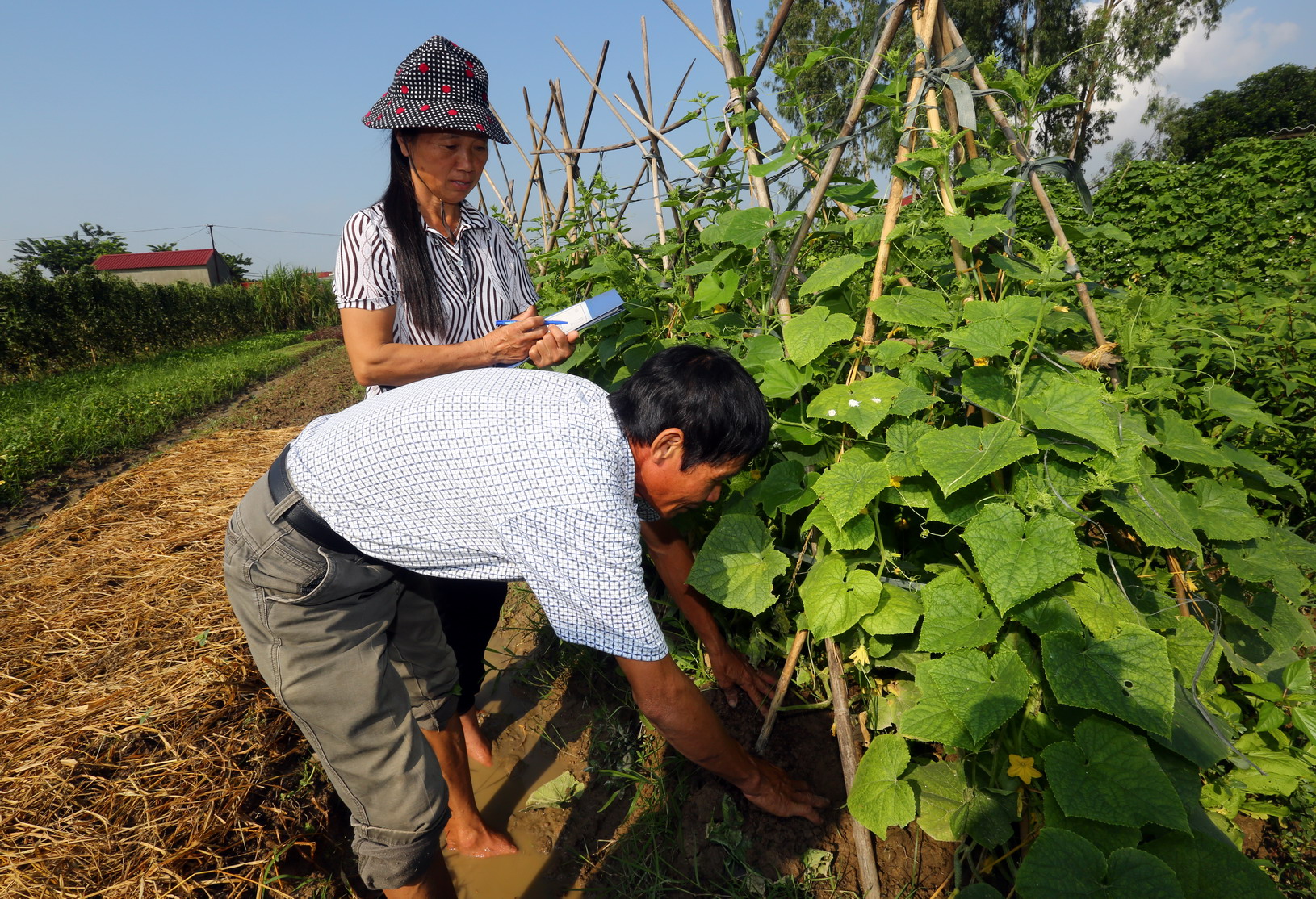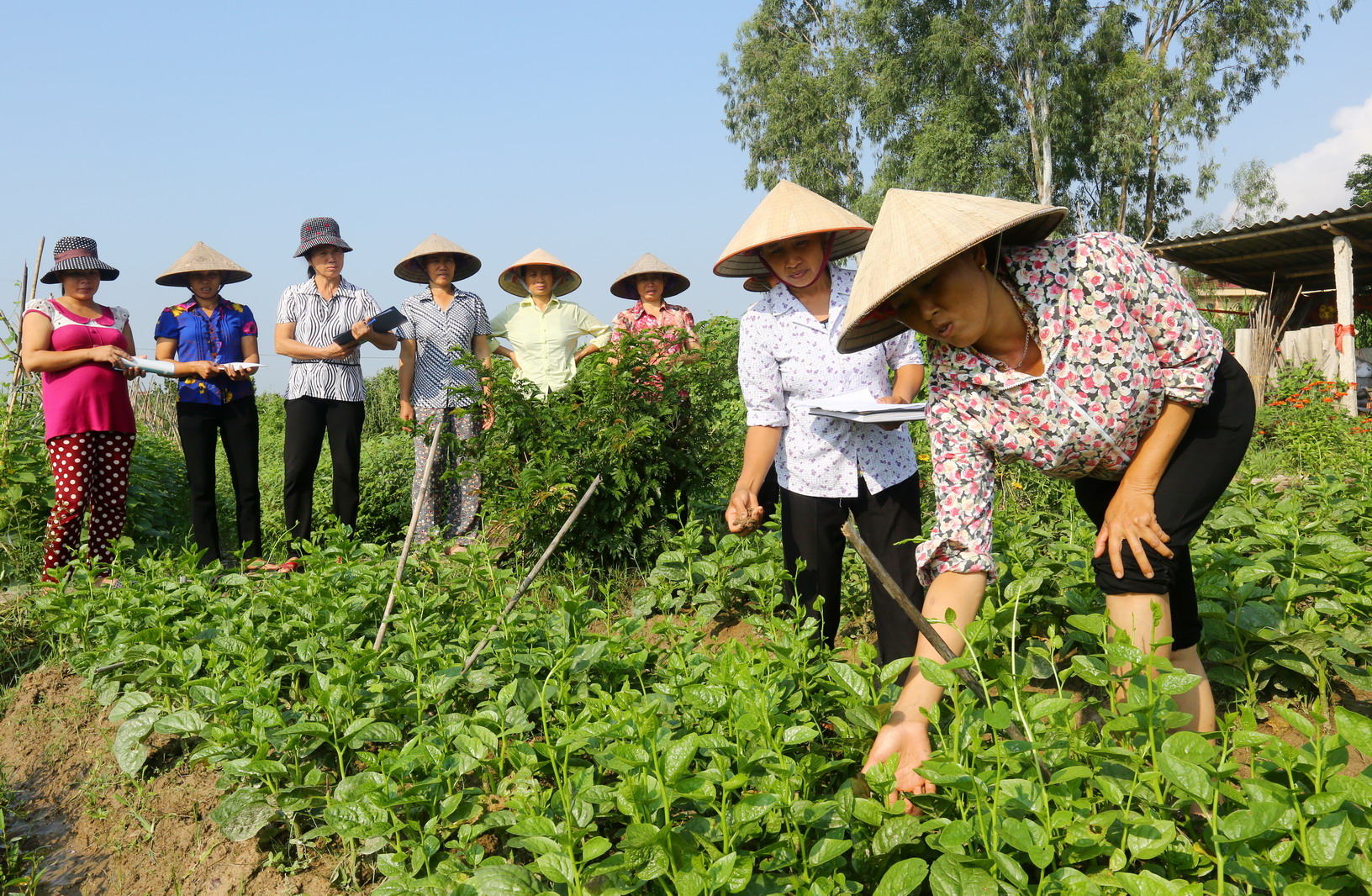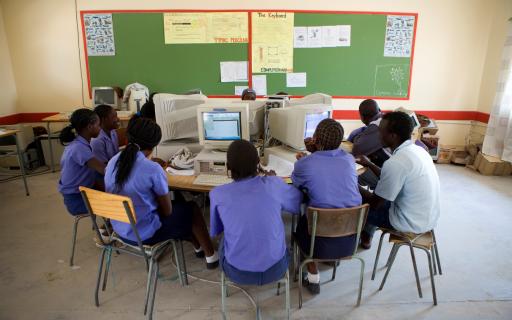The context
Various food security scandals have occurred in Vietnam. The intensive use of fertilizers and pesticides, often of poor quality, renders large quantities of fruits and vegetables dangerous for consumption.
Consumers are increasingly aware of the risk to their health, and this concern has resulted in an exponential increase in demand for organic and healthy products. At the same time, consumers do not know where and how to obtain safe products, firstly because the supply for these products is still largely insufficient, and secondly because many people have lost confidence in the quality of products and the certification system (lack of traceability).
However, this demand represents an opportunity for farmers who see the importance of producing healthy food as a means of increasing their incomes and helping people procure safe fruit and vegetables. To achieve this, small-scale farmers need to have their production officially certified, but this is expensive and therefore inaccessible.
The solution

Over the last 10 years, Rikolto has implemented a solution to this problem in Vietnam: the Participatory Guarantee System – PGS. The PGS is a method of ensuring the origin and quality of agricultural products from small-scale holdings, enabling them to be labelled as safe. It stands out from other certification systems thanks to its low cost and reduced administrative burden.
This approach allows small-scale producers to have access to a method of certification
In Vietnam, groups of vegetable growers, consumer organisations and Rikolto have developed a participatory certification system for 'healthy vegetables', which are grown with a reasonable use of pesticides. In this system, producers and consumers work together to issue quality assurances without spending money on external certification fees.
How it works?
The farmers make a commitment and form cooperatives.
As the name suggests, various partners participate (producers, government, retailers and consumers), all of whom are involved in inspecting compliance with healthy production standards. By working together, the quality of the product gets certified and it receives a label.
All the partners benefit:
- Producers: their products are certified and labelled, and their revenues increase
- Retailers: the product is controlled and its origin traced, which increases sales
- Consumers: have access to a safe product which is beneficial for their health
- The government: has a reliable, accessible and efficient method to restore public confidence in the certification system.
Besides setting up this system, Rikolto's role is also to optimise the production and commercial skills of small-scale producers, to help them find long-term outlets for their products at an acceptable price, for example through contracts with private sector retailers.
The result

The programme has already achieved various results, including an increase of production per hectare, the signing of various contracts to supply large private companies, an increase in the number of farmer members, and an increase in the selling prices of products.
In addition, the NGO has launched a platform, the SOFF-Safe and Organic Food Finder, which is accessible via the website or a mobile application (SOFF Android app or Apple iOS app), and which shows buyers where they can buy healthy food. By entering a location, all the nearby shops offering this type of product are displayed. The SOFF thereby solves one of the main difficulties, which was knowing where to buy provisions with peace of mind.
A PGS kit has also been developed and rolled out. It consists of a manual and other useful documents that allow interested parties to create their own PGS system.
But other objectives are envisaged by 2021:
- the implementation of 21 autonomous PGSs, bringing together 1,100 producers
- an ever-expanding market access with a long-term vision
- the creation of new PGSs modelled on pre-existing versions, thanks to the kit that has been developed
- Progress in getting the Vietnamese government to recognise the PGS as a valid quality assurance system.
The results of the system will be used to try to convince the Vietnamese government of the reliability of this system and have it recognised. Already in July 2018, the Department of Agriculture and Rural Development entered into a new partnership with Rikolto to promote the PGS and highlight the benefits of the system.
As part of its programme, Rikolto worked together with other Belgian and local actors, including the KUL, the Academy of Research and Higher Education - ARES, Gembloux Agro-Bio Tech and the Vietnam National University of Agriculture - VNUA. The NGO is also exploring future possibilities for collaboration, and consequently adheres to Belgian development cooperation policy in its vision of stimulating more synergies and complementarities between development actors.

The NGO has received a subsidy of €1,739,038.43 from the Belgian Non-governmental Cooperation for its 2017-2021 activities.
Conclusion
Previously, there were only a few local companies that were looking to produce organic products, but without any guarantees for consumers.
Today, thanks to this certification process implemented by Rikolto, the result is twofold.
Firstly, consumers can find safe food more easily on the market. As such, consumers have easier access to a safe and healthy product, and will buy more, since it is guaranteed to be of good quality.
This also means an increase in the income of fruit and vegetable producers, and an improvement in their living conditions.
Resources
- Pictures © Rikolto Vietnam
- Video MediaOneVietnam: PGS - Affordable for farmers, reliable for consumers


